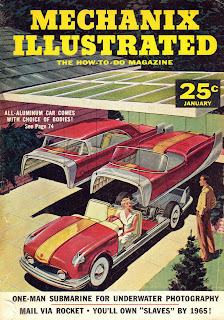My son, reviewing some of my favorites from the SLCMugshots website said, “I wonder if some of these people are criminals because of the way they look.” He meant things beyond their control, like this unfortunate individual:
If I get a zit on my nose I hide out in a dark room for three days until it’s gone. I can't imagine facing the world, knowing people will be startled by your appearance. He was arrested for controlled substance, and I don't know what that means, but I would think pain pills. I imagine whatever did this to him might cause him a lot of pain, both physical and mental.
Above: charge is forgery.
I'm not excusing criminal actions, but sometimes you can see an individual has a very rough path to walk.
On the other hand you have guys who deliberately make themselves ugly. These guys think marking up their heads with tattoos is cool or sexy, and I'm on record as saying it’s idiotic to brand yourself as so antisocial that you illustrate your face. A person who does that makes himself not only unemployable, but more easily identified if he commits crimes.
Assault:
Aggravated assault:
Methamphetamine:
I forgot to write down the reasons these two Queequegs were arrested:
It's not enough this guy wears his hostility inked on his head, but he also wears a shirt to emphasize it:
Above: the charge states simply, “Hold for U.S. Marshals.” He could run, but he couldn't hide with a face like that.
These guys can change their appearance with haircuts:
Above, “Failure to appear.”
Above: busted for weed. You think when the cops spotted his dreadlocks they got some Rastaman vibrations about him?
Above: this fellow not only needs a haircut, but a comb as well. He was arrested for “no auto insurance,” which I didn't realize was an offense that could land one in jail. Maybe he caused an accident through negligence. After all, he doesn't pay attention to his appearance, maybe he gives the same degree of care to his driving.
Above: this man needs to change his shirt. “Lewdness with a child” is the charge. KISS my . . . what?
I call these guys the Braidy Bunch:
Above: drug paraphernalia.
Above: driving under the influence.
Above: weapons violation.
Only one woman made the list today:
I forgot to write down the charge for “Batgirl,” but she's smiling, at least. As my wife, Sally, put it, “Maybe those bats are looking for a dark cavern.” Ho-ho! Good one!
Last, none other than Thomas Jefferson made the mugshots website on Independence Day. He was charged for “tax evasion, sedition, treason and miscegenation.”
Lest you think I made that one up, I took a digital photo from my monitor of the web page:
Above: I'm not sure what the ad headlined “SHIT” is about, but it shows a horse. Horseshit...huh. Very strange, even for a website full of strange people.






















































